ANZAC Day.
Tag Archives: Australia
It’s an egg problem; Salmonella spike in South Australia linked to television cooking shows? Blame the consumer
A spike in food poisoning cases has been linked to South Australians undercooking eggs at home.
The new cases have sparked warnings from health authorities to be wary of attempting techniques used on television cooking shows.
SA Health figures show 353 cases of potentially life-threatening salmonellosis have been reported throughout the state so far this year. That is about a third more than the number of cases – 267 – reported at the same time last year.
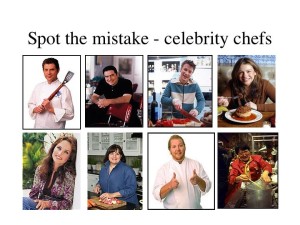 About 15 per cent of cases this year were hospitalised.
About 15 per cent of cases this year were hospitalised.
SA Health director of food safety and nutrition Dr Fay Jenkins said that while raw chicken and other meat can lead to salmonella poisoning, undercooked eggs were believed to be responsible for the recent increase.
“Millions of eggs are eaten each week,” she said. “It’s the exposure we have to eggs. There is nothing that has linked these cases to a restaurant or anything like that.
“We believe it is linked to the handling of eggs at home.”
Dr Jenkins warned against using such techniques as the 60/60 method of cooking eggs at a lower temperature of 60C for the longer timeframe of 60 minutes, a method featured on the inanely boring television cooking show, My Kitchen Rules.
How about cross-contamination or the ritualistic use of raw eggs in many Australian restaurants? You’ve heard it from Dr. Jenkins. It’s up to you, Australian consumers.
I habitually ask if the aioli or mayo is made at a restaurant using raw eggs, and then don’t touch it. But I don’t eat out that often anymore.
A table of raw egg related outbreaks in Australia is available at https://barfblog.com/wp-content/uploads/2014/03/raw-egg-related-outbreaks-australia-3-3-14.xlsx.
Spot the mistake: Television cooking shows as a source of food safety information
01.may.04, Mathiasen, L.A., Chapman, B.J., Lacroix, B.J. and Powell, D.A., Food Protection Trends 24(5): 328-334
Consumers receive information on food preparation from a variety of sources. Numerous studies conducted over the past six years demonstrate that television is one of the primary sources for North Americans. This research reports on an examination and categorization of messages that television food and cooking programs provide to viewers about preparing food safely.
During June 2002 and 2003, television food and cooking programs were recorded and reviewed, using a defined list of food safety practices based on criteria established by Food Safety Network researchers. Most surveyed programs were shown on Food Network Canada, a specialty cable channel.
On average, 30 percent of the programs viewed were produced in Canada, with the remainder produced in the United States or United Kingdom. Sixty hours of content analysis revealed that the programs contained a total of 916 poor food-handling incidents. When negative food handling behaviors were compared to positive food handling behaviors, it was found that for each positive food handling behavior observed, 13 negative behaviors were observed.
Common food safety errors included a lack of hand washing, cross-contamination and time-temperature violations. While television food and cooking programs are an entertainment source, there is an opportunity to improve their content so as to promote safe food handling.
What’s wrong with Australian recall notices: Sprout Garden alfalfa and onion sprouts
The food safety recall notices issued by Food Standards Agency – Australia/New Zealand don’t say much.
Below is the notice but what I’d want to know is: what kind of E. coli; how was it found; is anyone sick; should people eat raw sprouts?
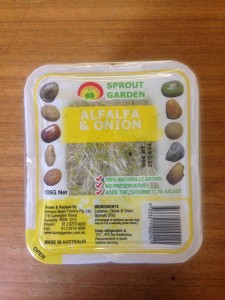 Too much for the communication geniuses on taxpayer salaries.
Too much for the communication geniuses on taxpayer salaries.
Belmore Bean Factory Pty Ltd has recalled Sprout Garden Alfalfa and Onion Sprouts from the Sydney Markets (Flemington) and fruit and vegetable stores in NSW due to E.coli contamination. Food products contaminated with E.coli may cause illness if consumed. Consumers should not eat this product and should return it to the place of purchase for a full refund. Any consumers concerned about their health should seek medical advice.
Proper handwashing requires proper tools
The state government in New South Wales – that’s where Sydney is – has come out with a new push for handwashing as a cornerstone of food safety.
I agree. But proper handwashing requires proper tools – vigorous water-flow, soap and paper towels.
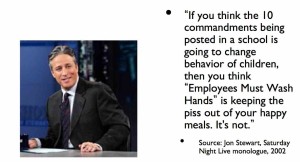 Almost no Australian restaurants have all three components, based on my anecdotal but extensive observation (and wet shorts because I don’t use blow-driers).
Almost no Australian restaurants have all three components, based on my anecdotal but extensive observation (and wet shorts because I don’t use blow-driers).
NSW Minister for Primary Industries, Katrina Hodgkinson visited the NSW Food Authority’s stand at the Sydney Royal Easter Show and said, “Handwashing is the most simple and yet the most effective means of reducing your risk of food poisoning.”
If it was simple, so many people wouldn’t get sick; proper handwashing requires access to proper tools.
Australia still has an egg problem: farm linked to 220 Salmonella illnesses fires 5 workers, back in business
Ash Lewis was limp in his mother’s arms. The three-year-old boy had been sick for several days, in and out of the family doctor’s surgery and up all night with diarrhea.
That Sunday he had been happily playing on the beach at Torquay on Victoria’s west coast and later munching on an egg and cheese roll at a  beachside cafe. He and his mother had left Melbourne to escape February’s heatwave.
beachside cafe. He and his mother had left Melbourne to escape February’s heatwave.
By Thursday his condition had gone downhill fast. He stopped speaking and couldn’t walk. His parents, Scott and Sarina Lewis, rushed him to the Royal Children’s Hospital in Melbourne. His blood pressure was down, his heart rate was low and his face was the ”colour of concrete.”
From the happy little boy playing in the sea he was now in hospital with an IV drip in his arm.
A stool sample taken from Ash confirmed he was infected with Salmonella causing gastroenteritis. The sandwich he ate at that cafe was prepared with mayonnaise made with free-range (but not microbiologically-safe) eggs.
Ash was one of about 220 people sickened with Salmonella linked to two Victoria, Australia, restaurants that were supplied by Green Eggs.
This week, the Victorian Health Department lifted a ban on raw egg products from the farm.
Media reports note that five workers were fired from the Green Eggs company last month.
Maybe they were the employees who didn’t have the Salmonella goggles.
And while an employee of the Victorian state government sent along its advice on using eggs — cook eggs until they are hot all the way through, but with no advice as to what hot all the way through actually means – the government utterly fails when it comes to enforcement.
Anyone who has been to an Australian restaurant will be offered a mayonnaise, salad dressing, béarnaise and hollandaise sauces, 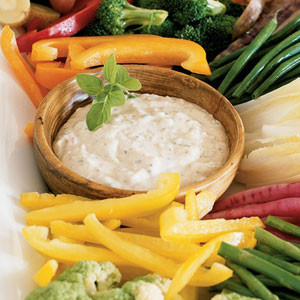 milkshakes with raw egg or an aioli dip that has been crafted by the chef using raw eggs, because no self-respecting chef would use a cooked product.
milkshakes with raw egg or an aioli dip that has been crafted by the chef using raw eggs, because no self-respecting chef would use a cooked product.
The Victorian government’s advice is that when in doubt, “read the label or get in touch with the manufacturer.”
There are no labels on those little containers of dip or the mayo on a sandwich. Good luck with that.
And why Australia continues to have an egg problem.
Seventy-seven diners who fell ill after eating at Canberra restaurant Copa Brazilian Churrasco last year are at present taking civil action against its owners in the ACT Supreme Court. A total of 140 people fell ill, with 15 taken to hospital, after eating home-made mayonnaise at the restaurant in May last year.
Here’s a tip: don’t use raw eggs.
Why won’t Australian government or industry or consumer groups make such a basic statement, and actively promote the message? Instead, consumers are told it’s their fault when they buy a sandwich made with raw egg mayo and get sick. And consumers pay for such terrible messages with tax dollars.
A table of raw egg related outbreaks in Australia is available at https://barfblog.com/wp-content/uploads/2014/03/raw-egg-related-outbreaks-australia-3-3-14.xlsx.
Worst food safety failures in NSW grocery stores
Rodents, bugs, filth and expired food have caused nearly 300 supermarkets, greengrocers and delis to be slapped with fines over the past six years, data from the New South Wales Food Authority shows.
The IGA Plus Liquor store in East Lindfield is the biggest repeat offender, receiving 11 fines totaling $5,280 for breaching food safety rules since 2009.
Despite being penalised two years ago for displaying food for sale past use-by dates, it committed the offence again. In August, it received three fines for peddling expired feta  cheese, quince paste and steak.
cheese, quince paste and steak.
An analysis of nearly 600 penalty notices issued to grocery retailers across the state since mid-2008 revealed one in 10 notices related to the selling of expired food.
Others concerned the failure to eradicate bug infestations and stop rodent activity, the failure to display potentially hazardous food under temperature control, filthy premises and grimy equipment, and the mislabelling of products. Most received prior warnings.
An employee at IGA East Lindfield, who refused to be named, said a Ku-ring-gai Council food inspector had fined them on ”very little things that shouldn’t be an offence,” such as running out of paper towels for the staff’s hand basin.
The fines for selling expired food were unfair, he said.
Since 2008, the state’s councils and the NSW Food Authority collected $400,000 in fines from transgressing supermarkets, groceries and delis. Fairfield Council holds the lion’s share at $45,650, followed by Willoughby Council ($29,150) and Blacktown Council ($18,920).
However, the compliance rate for all food businesses in the three council areas hovered between 89 per cent and 93 per cent in the past financial year.
Among the supermarket giants, 14 Coles stores were hit with 17 fines and eight Woolworths stores received 10 fines. The most recent fine was against the Pemulwuy Woolworths, which displayed barbecue chicken pieces outside the safe temperature zone.
Gavin Buckett, a food safety auditor of 12 years and founder of the consultancy firm Gourmet Guardian, said Woolworths and Coles had better training systems, signage with work instructions and systems to prevent recalled items being sold.
He said smaller businesses were more likely to source products from unaudited overseas suppliers without applying rigorous quality checks.
NZ cheese in Australia recalled for Listeria
Again, anyone sick? How was the Listeria detected? More Australian mysteries.
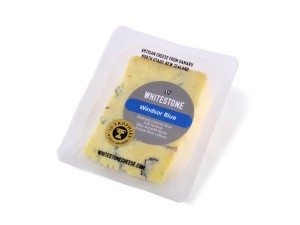 Whitestone Cheese (NZ) has recalled Whitestone Windsor Blue Cheese 110g from Woolworths Supermarkets in QLD, NSW, ACT and VIC due to Listeria monocytogenes contamination.
Whitestone Cheese (NZ) has recalled Whitestone Windsor Blue Cheese 110g from Woolworths Supermarkets in QLD, NSW, ACT and VIC due to Listeria monocytogenes contamination.
Organic Sprouts Salad recalled for Salmonella in Australia
Anyone sick? How was the Salmonella detected? More Australian mysteries.
Energetic Greens has recalled Organic Sprouts Salad (Broccoli, sunflower and radish) from local greengrocers and IGA stores in northern NSW (New South Wales)nand the 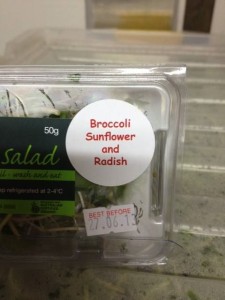 Mullumbimby, Bangalow and Glorious Organic Farmers Markets due to Salmonella contamination. Food products contaminated with Salmonella may cause illness if consumed. Any consumers concerned about their health should seek medical advice.
Mullumbimby, Bangalow and Glorious Organic Farmers Markets due to Salmonella contamination. Food products contaminated with Salmonella may cause illness if consumed. Any consumers concerned about their health should seek medical advice.
Clenbuterol: vet drug not just for elite athletes any more
Clenbuterol was never just for elite athletes, veterinarians could get it whenever they wanted.
But the Gold Coast Bulletin, the number one source for surf news in Australia, reports that bodybuilders, athletes and slimmers are misusing a livestock drug, putting them at risk of  serious health problems.
serious health problems.
Research reveals the use of veterinary drug clenbuterol has spread from elite athletes to the general public.
A rising number of Australians are calling poison hotlines with racing hearts, nausea, vomiting, tremors and anxiety.
There has also been one reported cardiac arrest in a young man linked to the drug.
Clenbuterol is predominantly used to treat respiratory illnesses in horses and, in some countries, it’s still used illegally to increase lean meat in food-producing animals.
Many Gold Coasters, striving to get the perfectly lean body, are using Clenbuterol with it relatively easy to access on the black market through gyms.
The study by the Royal Prince Alfred Hospital’s Dr Jonathan Brett and researchers from the NSW Poisons Information Centre found 63 calls for help about the drug from 2004-2009.
Most patients were using it for slimming and bodybuilding and had to be hospitalized.
The performance-enhancing drug made headlines when it was popular among elite athletes, with cyclist Alberto Contador and sprinter Katrin Krabbe receiving bans.
In humans, it’s used to boost aerobic capacity, the body’s ability to transport oxygen and metabolize fat.
Australia only now coming to grips with food safety basics
Ash Lewis was limp in his mother’s arms. The three-year-old boy had been sick for several days, in and out of the family doctor’s surgery and up all night with diarrhea.
That Sunday he had been happily playing on the beach at Torquay on Victoria’s west coast and later munching on an egg and cheese roll at a beachside cafe. He and his 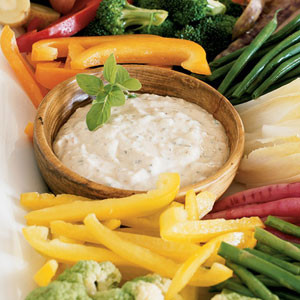 mother had left Melbourne to escape February’s heatwave.
mother had left Melbourne to escape February’s heatwave.
By Thursday his condition had gone downhill fast. He stopped speaking and couldn’t walk. His parents, Scott and Sarina Lewis, rushed him to the Royal Children’s Hospital in Melbourne. His blood pressure was down, his heart rate was low and his face was the ”colour of concrete.”
From the happy little boy playing in the sea he was now in hospital with an IV drip in his arm.
An estimate by the federal Department of Health puts the number of Australians contracting food-borne illness at 5.4 million cases, or nearly one in four, with 120 people so seriously affected they die. The cost to the economy has been put at $1.25 billion.
Richard Cornish of Good Food writes that incidents involving Salmonella have almost doubled in the past 10 years, from 6,990 in 2003 to 12,836 in 2013. In Brisbane last year, 220 people became ill and one elderly woman died after a Melbourne Cup lunch. The finger was pointed at raw egg mayonnaise contaminated with salmonella. In 2010, salmonella-contaminated aioli made with raw egg was found to be the cause of an outbreak in a hamburger bar that struck down 179 people
A stool sample taken from Ash confirmed he was infected with Salmonella bacteria causing gastroenteritis. The sandwich he ate at that cafe was prepared with mayonnaise made with free-range eggs. Owners of the cafe we spoke to believe this is the most likely cause of the food poisoning.
Brett Graham is the co-owner of the Bottle of Milk in Torquay. At the time of writing his cafe was still closed, three weeks after the food poisoning outbreak was identified. He has scrubbed his business from floor to ceiling, spent $20,000 rebuilding the kitchen, complete  with new fridges and dishwashers, and installed a window so diners can look in. “No one intentionally tries to make someone sick. I, we [he has a business partner], we feel terrible,” he says. “It’s a small town and a lot of people we know personally have been affected.”
with new fridges and dishwashers, and installed a window so diners can look in. “No one intentionally tries to make someone sick. I, we [he has a business partner], we feel terrible,” he says. “It’s a small town and a lot of people we know personally have been affected.”
The business is still paying their staff of 20.
Seventy-seven diners who fell ill after eating at Canberra restaurant Copa Brazilian Churrasco last year are at present taking civil action against its owners in the ACT Supreme Court. A total of 140 people fell ill, with 15 taken to hospital, after eating home-made mayonnaise at the restaurant in May last year.
Here’s a tip: don’t use raw eggs.
Why won’t Australian government or industry or consumer groups make such a basic statement, and actively promote the message? Instead, consumers are told it’s their fault when they buy a sandwich made with raw egg mayo and get sick. And consumers pay for such terrible messages with tax dollars.
A table of raw egg related outbreaks in Australia is available at https://barfblog.com/wp-content/uploads/2014/03/raw-egg-related-outbreaks-australia-3-3-14.xlsx.
